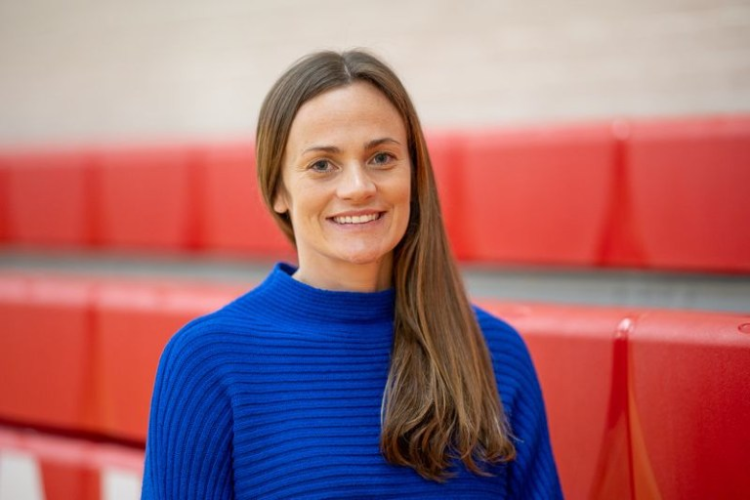Over the past few years, high blood pressure, emergency gallbladder surgery, sleep apnea and degenerative arthritis put him in a bad spot.
Although a more than 30-year career with the federal government had reached new heights, long hours of sitting at a desk led him to becoming less active and putting on extra weight.
Bloodwork showed he had high inflammatory factors and was prediabetic.
"I was dependent on pills to manage the blood pressure and the almost daily pain in my hips and back," explained Mr. Phelan (B.Comm.(Co-op.)'92), who also completed a certificate in public sector leadership and management development in 2003. "The ongoing stressors and pain also caused changes in the way I dealt with others. I was easily frustrated by even simple things."
He knew he had to make a change.
"I could feel my health worsening," said Mr. Phelan, who recently retired.
He's seeing positive results since joining a new program called Small Steps for Big Changes, a type 2 diabetes prevention program offered at YMCAs across the country, including at the Ches Penney Family YMCA in St. John's.
The program was developed with the support of a $3-million Canadian Institutes for Health Research grant and with an additional $2.5 million from the Public Health Agency of Canada.
Mr. Phelan is receiving one-on-one coaching with trained professionals and access to YMCA facilities and resources to maintain healthy diet and exercise choices beyond the program's duration.
He says he's focused on achieving "personal, meaningful and achievable goals."
"The program gave me structure that turned my motivation into actions and my goals into results," he said.
That feedback is also motivating researchers at Memorial University.
Initially tested in a lab setting, Small Steps for Big Changes saw participants increase their physical activity, lose weight and improve cardiorespiratory fitness with benefits maintained up to six months after completing the program.
Memorial connection
Dr. Katie Wadden, an assistant professor in the School of Human Kinetics and Recreation, is the Small Steps for Big Changes's eastern Canada regional research lead.

Dr. Katie Wadden is the eastern regional lead for the Small Steps for Big Change Program. Photo: Rich Blenkinsopp
She says the program is particularly important in Newfoundland and Labrador because 33 per cent of the population lives with diabetes or prediabetes, while 13 per cent has been diagnosed with diabetes a figure that rises to 18 per cent when undiagnosed cases of type 2 diabetes are included.
"This means one in three people in our province face an increased risk of developing serious complications such as kidney disease, vision loss, heart attack, stroke, nerve damage and amputation," said Dr. Wadden (B.Kin.(Hons.)'08, M.Sc.(Kinesiology)'10). "These are not just numbers. They represent our neighbours, friends, family members and co-workers."
Without intervention, individuals with prediabetes are at a greater risk of progressing to type 2 diabetes, she says.
"I am extremely proud to be part of a research team that prioritizes the needs of Canadians by offering a program aimed at improving preventive care and ensuring affordable access to services across all provinces," Dr. Wadden said.
Practical advice and training
Aderoju Lawal (MPH'24), a regional research co-ordinator with the program, oversees its implementation in Atlantic Canada and collaborates with community partners, clinics and health-care professionals to encourage enrolment and referrals.
Originally from Nigeria and now living in St. John's, Ms. Lawal finds it fulfilling to provide personalized coaching to participants and to help make a difference in their lives.
"This ensures that participants feel genuinely heard and valued, aligning seamlessly with Small Steps for Big Changes' motto: Never a prescription, always a conversation," she said. "By fostering empowerment and sustainability, Small Steps for Big Changes offers a distinctive and impactful pathway to better health and well-being within our community."
The program also provides practical hands-on training for students.
Matthew Voigt, who is from Mount Pearl, N.L., is in his last semester of the school's Bachelor of Kinesiology Program.
He's learning how to provide effective coaching to clients and patients, which he plans to incorporate into his future career in physical rehabilitation.
"The motivational interviewing approach will help me collaborate with clients to generate exercise plans that work for their unique lifestyle and hopefully increase the likelihood of them sticking to it," he explained.
Mr. Phelan credits Memorial researchers and their collaborators for creating a program he could embrace.
"I feel like I am a part of something bigger than me," he said. "It feels like I am a part of an informal community of people, all on our own individual health journeys."
Learn more about research at Memorial and check out Research Strategy 2023-28 to learn how we're moving ideas forward.













